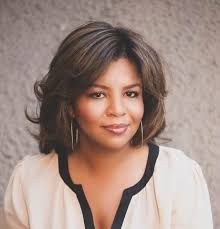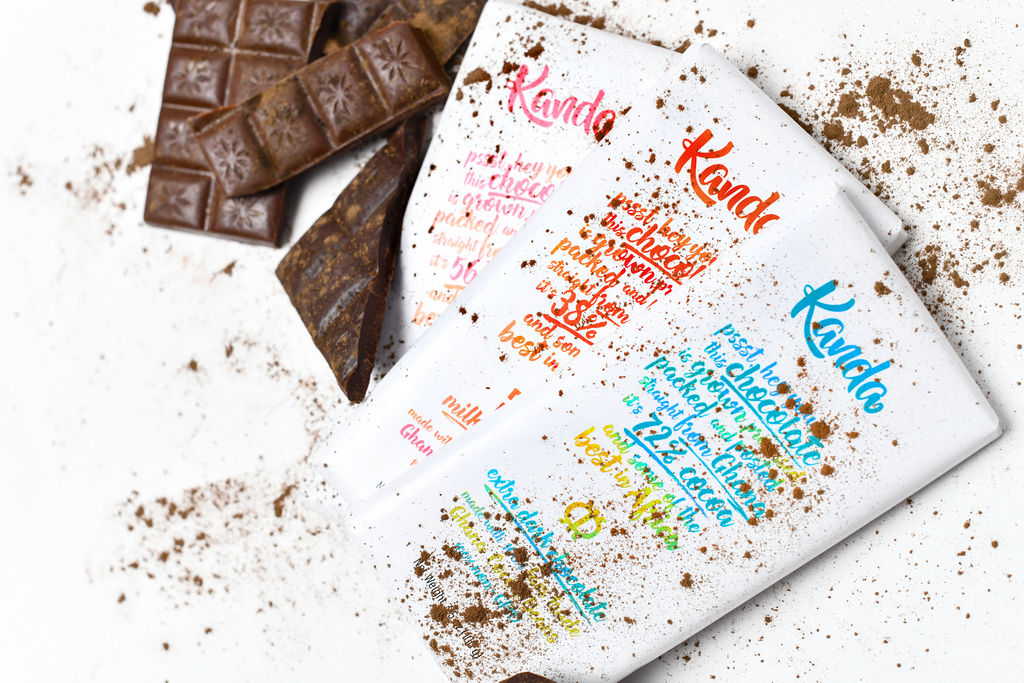I love chocolate. It’s more than a food, it’s my joy enhancing, tear drying, health boosting superfood. I mean, for all situations in life – just add chocolate.
My love for chocolate runs deep. It extends way beyond my need for self-gratification. I care about how each bar of chocolate is made and the people behind the hands used to make it.
During my last trip to Ghana, I had the opportunity to visit with college students at a local university. Some had left cocoa farming behind and were pursuing careers within urban areas. During that visit, it dawned on me that these students were a part of the many in that generation that were choosing something else besides cocoa farming. They’d seen their parents and grandparents put their love into a craft that “hadn’t loved them back.”
It was a shifting moment for me. As Ghana continues to evolve, each future generation will have choices – one that allows them to choose to farm cocoa or not. Cocoa farming will no longer be a necessity as much as it will be a choice. And who would choose cocoa farming if it didn’t “love them back”.
With Ghana being the 2nd largest exporter of cocoa in the world, I’m not alone in this realization. While large companies can invest in cocoa producing farms elsewhere, they simply can’t re-create the conditions that give birth to the superior cocoa grown in Ghana.
So, how do we make cocoa farming a more attractive choice for the younger generations? While there is no singular answer, it does begin with actions that “love them back”. And a part of “loving them back” is paying them a fair wage. Today, cocoa farmers are the lowest earning stakeholders in the sale of chocolate. Earning just 6.6% of the retail price of chocolate, cocoa farmers are earning well below the extreme poverty line.
In recent news, West Africa is pushing back on the $130 billion dollar chocolate industry and asking for a larger piece of the pie. So, what can you and I do as individuals? As consumers of chocolate, we can shift our purchasing power to Fair Trade chocolate. Purchasing Fair Trade chocolate begins the process of showing “love”. It deters child labor, promotes sustainable harvests, and it pays a premium directly to the cocoa farmers.
I created Kanda Chocolates to be a part of the solution. While we purchase Fair Trade cocoa, we are working on ways to increase our premium paid to the farmers. Additionally, our chocolate is also made in Ghana which allows to contribute to the jobs and the economy as a whole. And we won’t stop there. We will continue to seek ways to “love them back”.
As a part of that, we’ve decided to use our voice to encourage others to join us. On your next chocolate purchase – whether it’s to love yourself or another – consider purchasing Fair Trade chocolate. You can double down on that love by including the cocoa farmers. Consider it an investment in the future of chocolate – because it literally is.
It’s never going to be a question of “Do we love chocolate?” – the numbers don’t lie – but rather a question of “Do we love it enough?”
ABOUT THE AUTHOR

Karen M. Blackwell is the founder and CEO of Sage & Alms™, a benefit corporation that houses the brand Kanda™ Chocolates . Karen chose to create a benefit corporation to further illustrate her commitment to balancing social justice, environmentalism, and profits equally. As CEO, Karen develops and executes on business that helps to create a sustainable business through global partnerships; with a current focus on Ghana.
Karen traveled to Ghana and fell in love with the creamier texture, fruiter notes, and overall unique ‘chocolately’ flavor profile associated with chocolate made in Ghana. With Ghana being the 2nd largest exporter in the world, she was shocked to learn that bean-to-bar, single-origin chocolate was absent among their leading exports. Later, it was no surprise to also learn that Ghanaian chocolate was either rare or absent from the shelves of major grocers within the United States. Kanda™ Chocolates was created to elevate the chocolate tasting experience while maintaining a commitment to social responsibility through fair-trade cocoa and the company’s Almsgiving Campaign. You can learn more about Kanda™ Chocolates at https://www.kandachocolates.com .
Connect with Karen on LinkedIn, follow her work and buy her products on Facebook and Kanda Chocolates.

